
Dutch Colonial Empire Dutch empire, Modern history, Empire
The Dutch entrance into the Atlantic World is part of the larger story of religious and imperial conflict in the early modern era. In the 1500s, Calvinism, one of the major Protestant reform movements, had found adherents in the northern provinces of the Spanish Netherlands. During the sixteenth century, these provinces began a long struggle to.
Dutch colonies and claims in North America, 1656 [6840×5770] MapPorn
Maps and atlases from former Dutch colonies. Two of the largest collections that are now digitally available were only recently entrusted to the UBL; the KIT (Royal Tropical Institute) Dutch colonial maps collection and the KITLV (Royal Netherlands Institute of Southeast Asian and Caribbean Studies) maps and atlases collection. These.
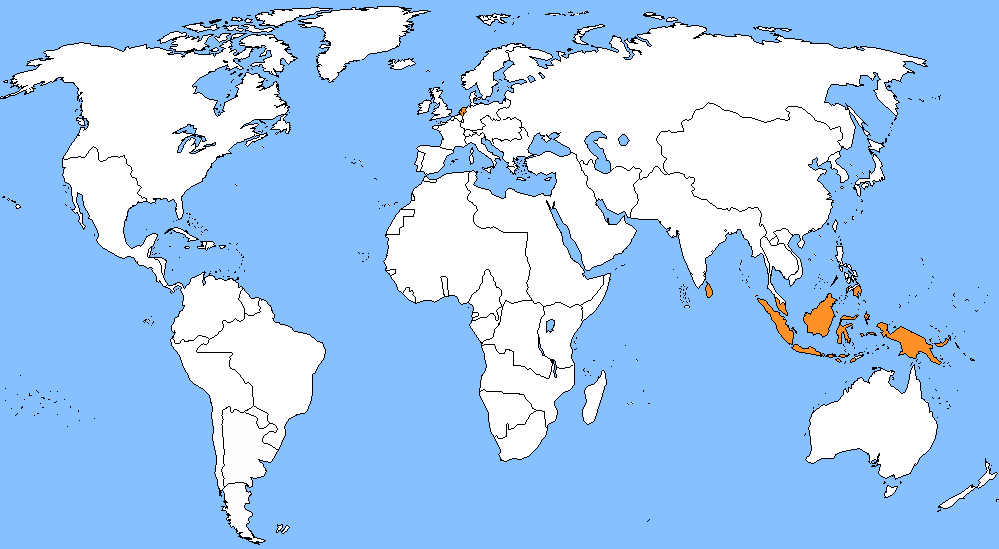
FileDutch Colonial Empire.png
Maps of colonialism Colonies in 1492 Colonies in 1550 Colonies in 1600 Colonies in 1660 Colonies in 1754 Colonies in 1822 Colonies in 1885 Colonies in 1898 Colonies in 1914 Colonies in 1920 Colonies in 1936 Colonies in 1945 Dates of independence Colonies by country Belgium Belgian empire XIX-XX centuries Belgian Congo in 1914 Belgian Congo in 1914

1950's map of the Dutch Colonies in South America MapFans
Map of the East Indies The VOC name came from the Dutch East Indies Company (Vereenigde Oost-Indische Compangnie). [10] This trading company was founded in the Dutch Republic, started in 1602 to protect their trade along the Indian Ocean. The VOC main trade location was in Indonesia. The company became the only power of the peninsula.
The Netherlands and the Republic's Colonies in 1700 Visualized my progress in a Netherlands
Dutch Colonial Maps KIT A large collection of c. 11,000 map sheets and c. 250 atlases of the Dutch colonies from the former library of the Koninklijk Instituut voor de Tropen (Royal Tropical Institute), a State loan since 2013.

The United Kingdom of the Netherlands 18151830 European History, World History, Family History
Delaware, the first of the thirteen original States that ratified the federal Constitution; takes its name from Lord De la Warr (Delaware), who entered the bay of that name in 1610, when he was governor of Virginia. It had been discovered by Hudson in 1609. In 1629 Samuel Godyn, a director of the Dutch West India Company, bought of the Indians.
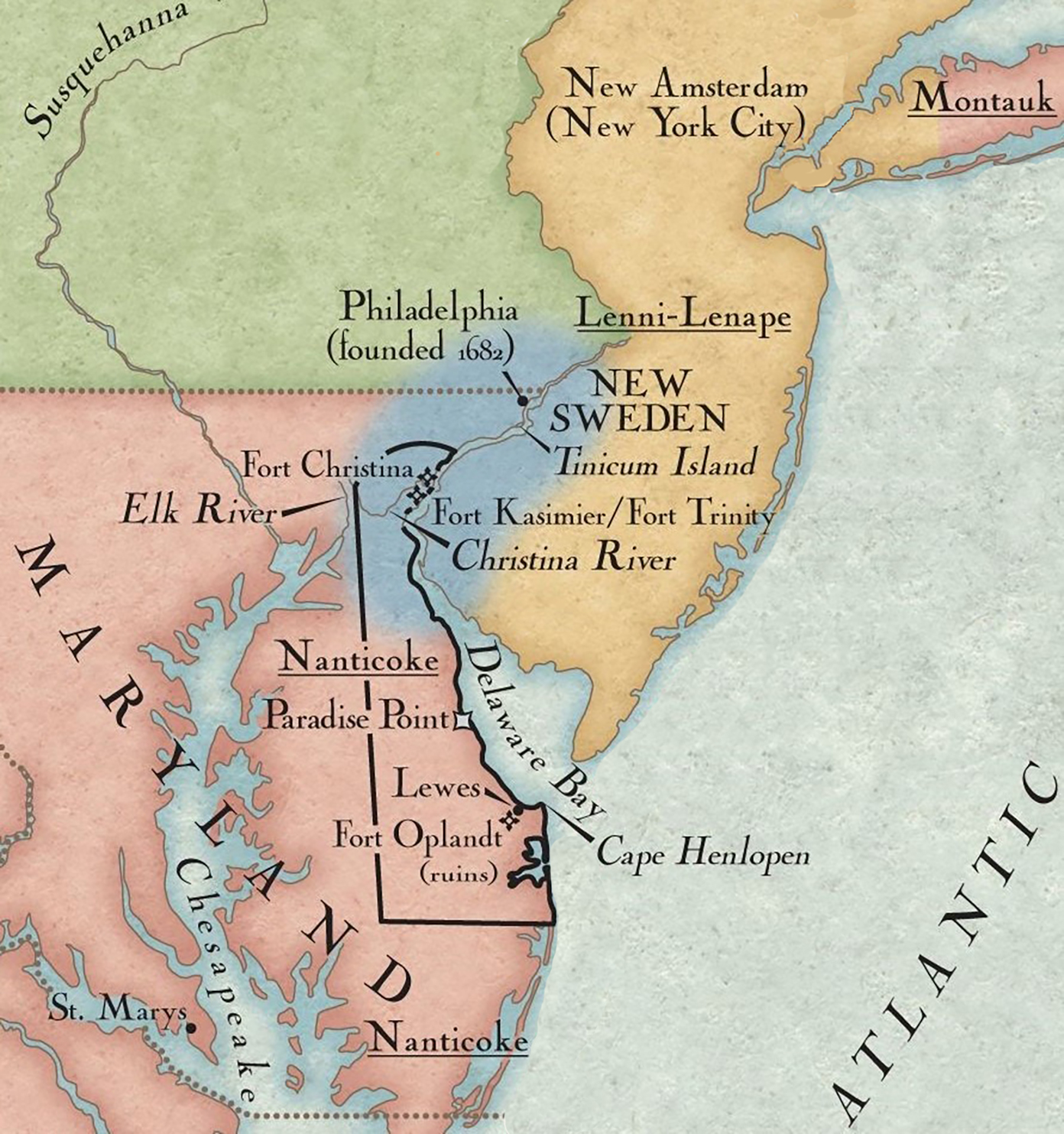
Dutch Colonization Map
1685 reprint of a 1656 map of the Dutch North American colonies showing extent of Dutch claims, from Chesapeake Bay and the Susquehanna River in the South and West, to Narragansett Bay and the Providence-Blackstone Rivers in the East, to the St. Lawrence River in the North
AHC Dutch Empire
Dutch Exploration and ColonizationOverviewIn the sixteenth century the United Provinces of the Netherlands rose from the status of a Spanish possession to a great European power. Dutch ships carried goods throughout the world for virtually every European nation, Dutch merchants and bankers made Amsterdam the economic center of Europe, and the Dutch navy was a power to be reckoned with.
Map of the Dutch Empire in 1821 imaginarymaps
DUTCH COLONIES. Europe, 1450 to 1789: Encyclopedia of the Early Modern World. DUTCH COLONIES This entry includes two subentries: THE AMERICAS THE EAST INDIES Source for information on Dutch Colonies: Europe, 1450 to 1789: Encyclopedia of the Early Modern World dictionary.

Antique Map of the Dutch Colonial Empire in the late 17th Century by Mees (1864) eBay
Three former colonial territories in the West Indies islands around the Caribbean Sea — Aruba, Curaçao, and Sint Maarten —remain as constituent countries represented within the Kingdom of the Netherlands. [14] Former Dutch colonial possessions This list does not include several former trading posts stationed by Dutch, such as Dejima in Japan.
The Dutch Empire, 1795 r/eu4
DUTCH COLONIAL EMPIRE. COLONIAL ETHICS AND MODERNISM PROFITS OF EMPIRE DECOLONIZATION DEVELOPMENT COLONIES BIBLIOGRAPHY. The foundations of the Dutch Empire were laid in the seventeenth century by trading companies operating in Asia and the Atlantic. Business was, in all periods, the primary motive of Dutch colonialism, engendering a utilitarian colonial discourse.

Dutch Empire Everything You Need to Know with Photos Videos
Mapping the New World: Dutch Maps of the Colonies Last Updated September 11, 2023 by Rebecca Furer for Teach It TEACHER'S SNAPSHOT Topics: Colonial History, Environment, Exploration & Discovery, Geography, Maps, Native/Indigenous Peoples Themes: Map Reading Skills, The Impact of Geography on History Town: Guilford, Hartford, Statewide, Watertown
The Possessions of the Great Dutch Empire between 1665 and 1962 r/imaginarymaps
The Dutch had colonies in several African countries, such as the Ivory Coast, Dutch West Africa, which is now part of modern-day Senegal, and Dutch East Africa, known today as Tanzania. The Dutch have left an indelible mark on the world, and Dutch colonialism has had a lasting impact in Africa.
All territories colonized by the Dutch 15981975 MapPorn
Important Former Colonies in Asia Indonesia: Then known as the Dutch East Indies, the thousands of islands of present-day Indonesia provided many highly-desired resources for the Dutch. The Dutch base in Indonesia was Batavia, now known as Jakarta (Indonesia's capital). The Dutch controlled Indonesia until 1945.
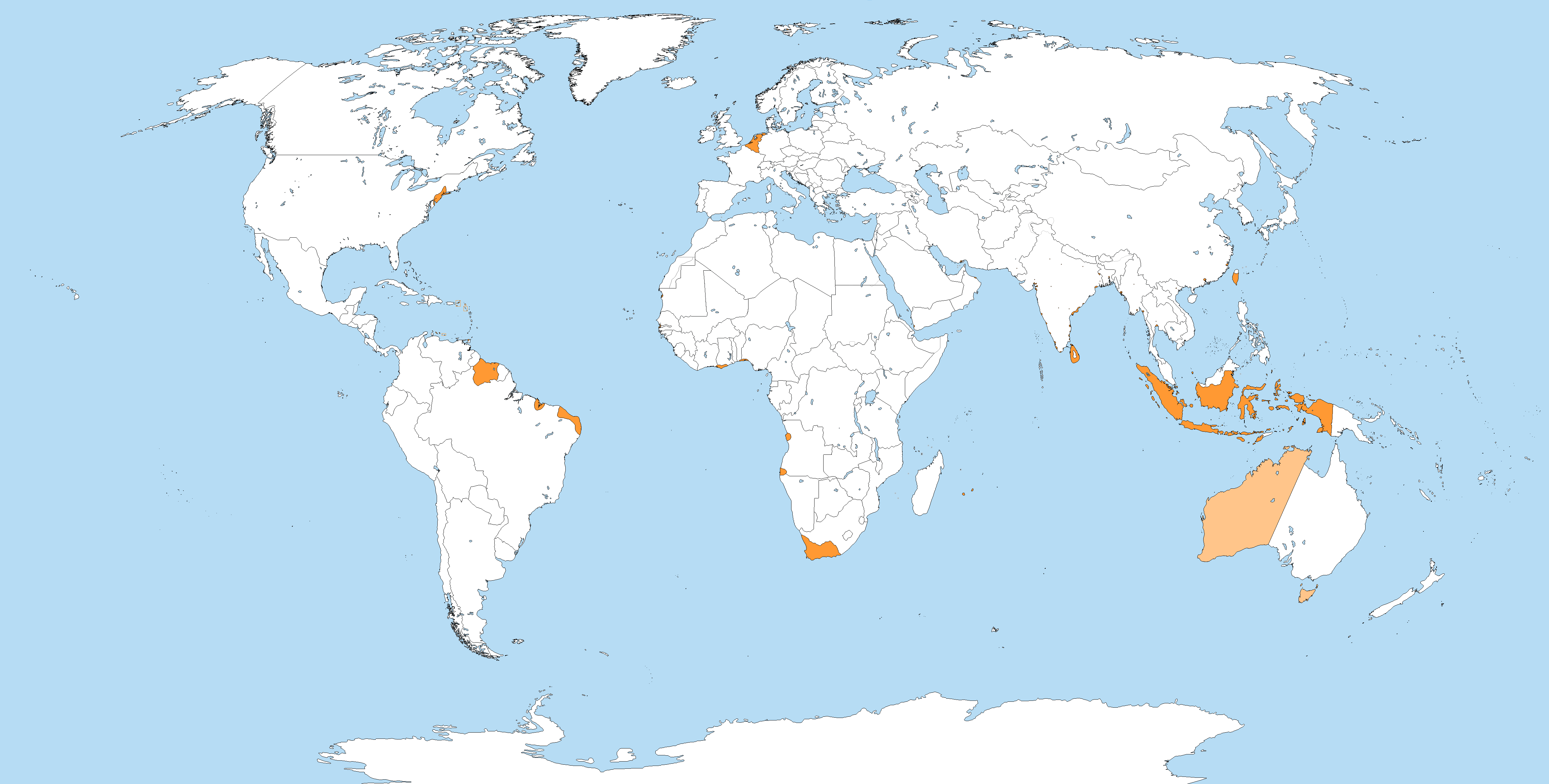
The Dutch Empire by DinoSpain on DeviantArt
A map showing the territory that the Netherlands held at various points in history. Dark green indicates colonies that either were, or originated from, land controlled by the Dutch West India Company, light green the Dutch East India Company

Map of the Dutch colonial possessions around 1840, including the Dutch East Indies, Curacao and
The Dutch colonial empire comprised the overseas territories and trading posts controlled and administered by Dutch chartered companies—mainly the Dutch East India Company and the Dutch West India Company—and subsequently by the Dutch Republic , and by the modern Kingdom of the Netherlands after 1815. It was initially a trade-based system which derived most of its influence from merchant.